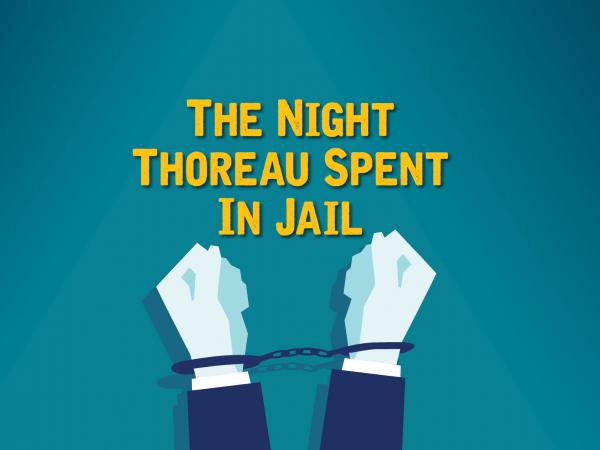In 1846, the essayist, philosopher, abolitionist, and naturalist Henry David Thoreau spent a night in jail after refusing to pay tax money that would support the war President James Polk singlehandedly waged against Mexico. This incident later provided the basis for Thoreau’s essay “On the Duty of Civil Disobedience” and serves as the inspiration for Lee’s and Lawrence’s fictionalized account of that evening and the events leading up to it. While the play offers insight into the man and his meditations — his transcendentalist world view, his witty disregard for organized religion and his penchant for nature and civil disobedience — it also concerns itself with what weighs heavily in our own politics today.
Part of SVMoA's BIG IDEA project The Bottomlessness of a Pond: Transcendentalism, Nature and Spirit.
